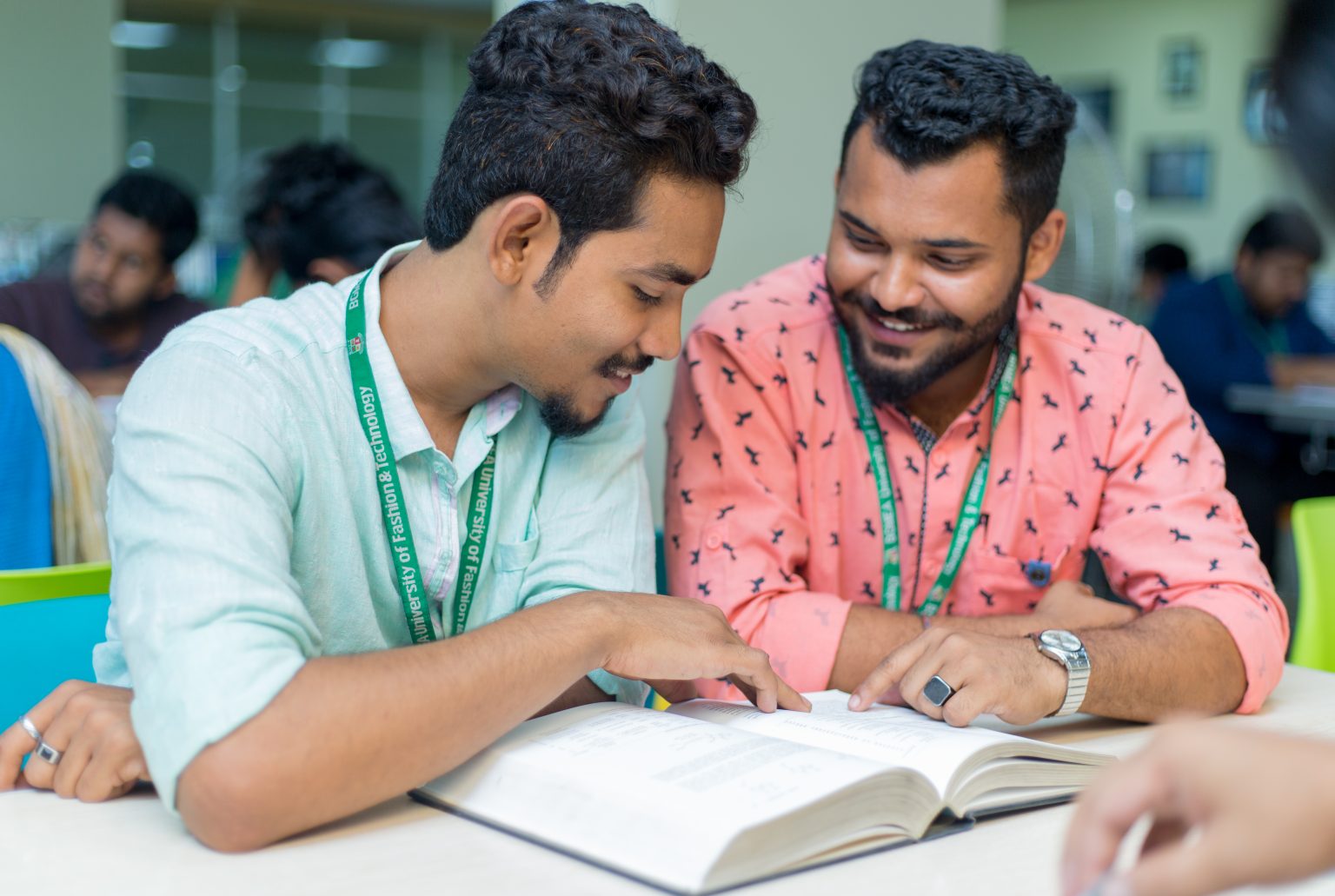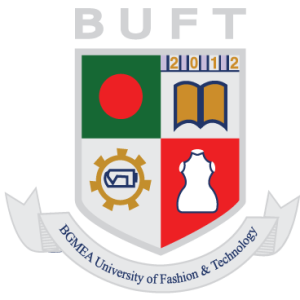As we enter the third decade of the twenty-first century, new skills, knowledge, practices and paradigms are required for continued leadership in the fashion industry. The Department of Fashion Studies prepares students for the future by equipping aspiring fashion creatives with the motto ‘RE-DESIGN THE WORLD’. As a fashion institution, we consider how to integrate design, sustainability and future production technology and practices that protect users and the earth through the combined use of technology, local craft and quality over newness and speed, how to decolonize the fashion industry and foster Indigenous fashion resurgence, how to support non-binary fashion collections, as well as what impact we want our work to have on the fashion industry and the world today, tomorrow and for the next seven generations. By centering new worldviews and actions, the Department of Fashion Studies will further BUFT’s legacy of leadership in the fashion industry.
As we enter the third decade of the twenty-first century, new skills, knowledge, practices and paradigms are required for continued leadership in the fashion industry. The Department of Fashion Studies prepares students for the future by equipping aspiring fashion creatives with the motto ‘RE-DESIGN THE WORLD’. As a fashion institution, we consider how to integrate design, sustainability and future production technology and practices that protect users and the earth through the combined use of technology, local craft and quality over newness and speed, how to decolonize the fashion industry and foster Indigenous fashion resurgence, how to support non-binary fashion collections, as well as what impact we want our work to have on the fashion industry and the world today, tomorrow and for the next seven generations. By centering new worldviews and actions, the Department of Fashion Studies will further BUFT’s legacy of leadership in the fashion industry.
M 1: The Department aims to transform the fashion industry by centering technology driven, inclusive, decolonized and sustainable approaches to fashion through our teaching, research and creative activities as well as, our industry and community partnerships.
M 2: Promoting new creative design processes, techniques and methods that recognize and honor tradition while critically challenging convention and social norms, with a global perspective.
M 3: To nurture students to become leading fashion makers, thinkers and doers equipped to systemically transform the Bangladeshi and global fashion system, as well as respond to and instigate new ideas in the ever-evolving fashion landscape.
We aspire to excellence in all our work, both inside and outside the classroom, in a way that is positive and authentic. Teaching, learning at the Department of Fashion Studies are influenced by the diversity of ideas and experiences that members of our community bring. A major strength of our department comes from the diversity in our FS family, which reflects the very essence of fashion’s diverse, multicultural community. Respect and a commitment to shared success underpin how we work together and how we treat one another. Collaboration for mutual success shapes our work and the ways in which we measure achievement. The Department of Fashion Studies is committed to pursuing environmental, social and economic sustainability through our academic programs, SRC activities, built environment, operations and policies. We recognize our individual and collective responsibility for our campus, our community and our planet. The Department of Fashion Studies champions creativity, innovation and ingenuity, encouraging students, faculty and staff to think boldly, take initiative and demonstrate resourcefulness. The Department of Fashion Studies is committed to the success of its community by creating a safe, secure, collegial, healthy, and inclusive environment that puts people first, is supportive of the whole person and enhances the development of physical, mental, emotional, and spiritual wellbeing. The Department of Fashion Studies is committed to providing access to education and employment opportunities for students, faculty and staff, particularly those from marginalized, under-represented and equity-seeking groups. Access includes lifelong learning, expanding our individual and collective horizons through professional development and learning opportunities that meet students’ needs.
Fashion is a fast-moving and diverse international industry. It has historical and social and significance, often underpinning our cultural values. B.A. in Fashion studies program at BUFT recognizes this climate of diversity and cultural importance. Encouraging innovation and originality, the course will support student’s creative, practical and intellectual development. It will enable students to take advantage of the wide range of opportunities the industry can offer. The B.A. in Fashion Studies integrate inclusive, decolonized and sustainable perspectives throughout our curriculum, research, and creative activities as well as industry and community partnerships. Gain hands-on experience with 250 hours of internship and career-focused workshops integrated into the program. We nurture students to become leading fashion designers, creatives and business leaders by encouraging you to hone your creativity and connecting you with the global fashion industry.
The B.A. in Fashion Studies curriculum offers opportunities for interdisciplinary work and collaboration. This is formulated to provide a microcosm of the professional fashion design world. The nature of this work will give students valuable insight into their future role in the industry. The curriculum is also flexible and provides scope for professional networking. B.A. in Fashion studies focuses on active learning through project-based enquiry. Collaborative projects may involve cross-pathway teams, as well as work with external professionals, sponsoring companies and organizations.
The program consists of eight academic semesters and a total of 147 credits. Each semester is subdivided into modules from the fields of: Majors, Deepening Specializations, Interdisciplinary Minors and General Electives.Academic Majors are the academic disciplines or program-related courses which the undergraduate students formally complete. Students are allowed to deepen their understanding of their core majors through a Deepening Specialization, which gives them a further edge in specific industries. Interdisciplinary Minors provide individuated pathways that would permit students to acquire multidisciplinary skill sets and opt for a group of subjects that complement studies in one’s major or explore an unrelated area of intellectual interest. General Electives are offered to the students to help them enhance their personality and develop interests in specific areas like values, personality development and character building, soft skills, communication skills, critical thinking skills, professional ethics etc.
The program creates a learning environment in which innovation is nurtured across four distinct but closely related pathways. Through this structure, we encourage versatile fashion specialists who can solve problems creatively. We aim to equip you with in-depth knowledge of your chosen field as well as a wider breadth of the industry. Alongside your specialism, you will learn about the social, economic and cultural factors which impact on the professional realm in which you will work.

The Bachelor of Arts in Fashion Studies Program aims to educate a creative, lateral thinking professional with knowledge from the ‘state of the art’ computerized machinery to handmade items. The local markets of Bangladesh, India, Sri Lanka and Pakistan have great scope for home consumption and export of Bangladeshi designed garments and handcrafted items.
The multidisciplinary nature of textiles provides an opportunity for students to develop strong critical and analytical abilities and become individually creative. The future generations of innovative, creative and highly individual design statements will work as a platform for producing designers with a ‘Bangladesh Style’, becoming ‘Fashion Leaders’, not merely copyists and ‘followers’ of other design.
The educational objectives of B.A. in Fashion Studies program are as follows:
PEO 1: To produce graduates who are fully equipped with an industry skill set that enables them to be creative and innovative whilst communicating their ideas effectively.
PEO 2: To Critical evaluation of the environmental and social impact of the fashion industry on national and global scale and have a commitment to ethical and environmental considerations, traditional crafts and society when developing design concepts.
PEO 3: The ability to analyze problems and generate the problem-solving and concept generating approaches required by the fashion industry for graduate-level employment or postgraduate education by applying current and emerging technologies, with the intention of demonstrating diverse applications to the contemporary fashion industry.
B.A. in Fashion Studies graduates will be able to:
PLO 1 Technical knowledge: Apply the knowledge of 2D and 3D design, garment construction and related technologies to the solution of complex technical problems.
PLO 2 Problem analysis: Identify and analyze complex technical problems reaching substantiated conclusions using the technical knowledge.
PLO 3 Design/development of solutions: Conduct accurate analysis of the market, the trends, materials and fabrics, as well as translating ideas and inspiration derived from any form, concept, or art, or simply from their own experiences, successfully combining a personal vision with industry needs, or brand design strategies.
PLO 4 Business knowledge: Use knowledge of management, marketing and entrepreneurship to realize their ideas in the world of fashion.
PLO 5 Usage of modern technology: Learn and apply appropriate techniques, resources, modern technical and IT tools including analysis and 3D modeling technologies to advance the industry and their efforts.
PLO 6 Fashion and society: Apply reasoning informed by the contextual knowledge to assess societal, health, safety, legal and cultural issues and the consequent responsibilities relevant to the professional design practices.
PLO 7 Environment and sustainability: Understand the impact of the fashion on the environment and create designs that will improve these conditions.
PLO 8 Ethics: Apply ethical principles and commit to professional ethics, responsibilities, and norms of the technical practices.
PLO 9 Collaborative work: Function effectively as an individual, and as a member or leader in diverse teams, and in multidisciplinary settings.
PLO 10 Communication: Communicate effectively on complex activities related to fashion and design with the community and with society at large, such as, being able to comprehend and write effective reports and design documentation, make effective presentations, and give and receive clear instructions.
PLO 11 Adaptability: Demonstrate ability to rapidly learn new skills and behaviors in response to changing circumstances.
PLO 12 Life-long learning: Recognize the need for, and have the preparation and ability to engage in independent and life-long learning in the broadest context of technological change.
Enter your email address to get the latest University news, special events and student activities delivered right to your inbox.

Copyright©BUFT